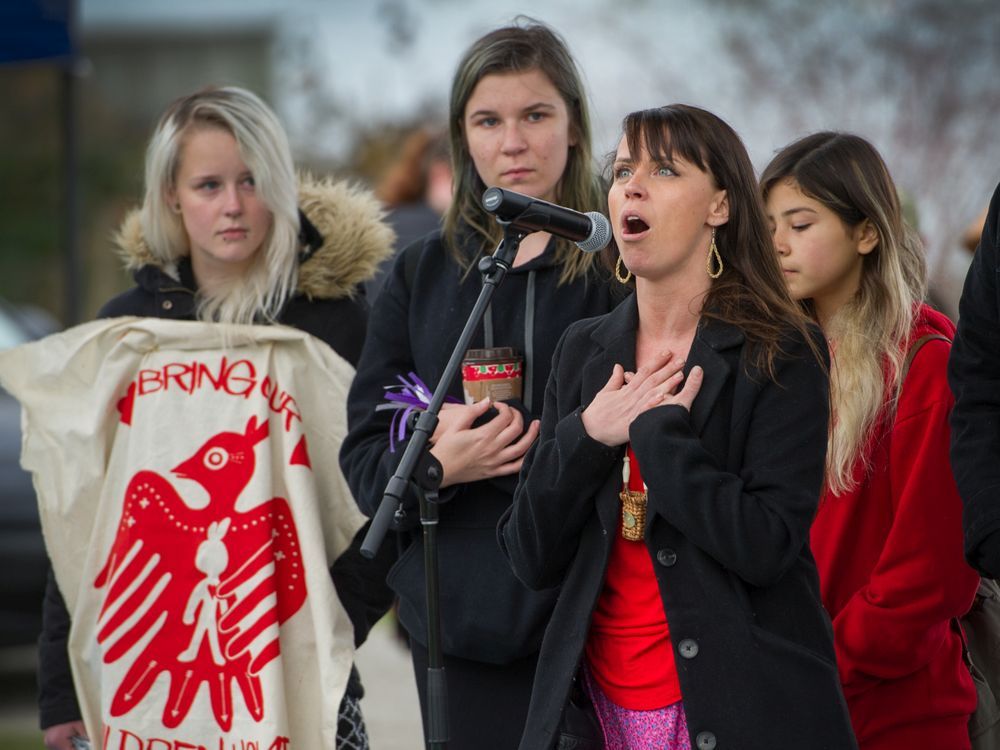Ottawa to appeal tribunal order to compensate First Nations children

Credit to Author: The Canadian Press| Date: Mon, 25 Nov 2019 21:19:10 +0000
The federal Liberals say they’re appealing a Canadian Human Rights Tribunal ruling on First Nations children because it limits the families that could receive compensation to only those affected in the last 13 years.
That appeal is underway today in Ottawa, where the Justice Department lawyers are expected to ask the Federal Court for a stay of execution of the tribunal’s September order that the federal government must compensate First Nations families who were inappropriately split apart by the child welfare system.
Instead, a settlement in a separate class-action case brought earlier this year will be pursued, the government said in a statement this morning from Marc Miller, the Montreal MP appointed last week as minister of Indigenous Services, and Justice Minister David Lametti.
Xavier Moushoom, an Algonquin man from Quebec was moved in and out of 14 foster homes from the time he was nine until he was 18. His lawsuit claims the federal government knew it was inadequately funding child welfare services for children on reserves and did nothing about it.
Miller and Lametti said that Canada “agrees it must fairly and equitably compensate First Nations children who have been negatively impacted by child and family policies. What we must do is seek an approach that will provide a fair and equitable resolution.”
“To that end, we will work with plaintiff’s counsel with the goal of moving forward with certification of the Xavier Moushoom and Jeremy Measwasige v. The Attorney General of Canada class action,” they said.
Federal lawyers began negotiating with the plaintiffs’ lawyers earlier this fall.
Measwasige was added as a new plaintiff when the original statement of claim was amended to increase the lawsuit from $3 billion to $6 billion. The 25-year-old from Nova Scotia was born with cerebral palsy, spinal curvature and autism. He battled the federal government to get adequate funding for essential services.
The class action case was filed last March. The human rights tribunal order came in September, requiring the government to pay $40,000 for every First Nations child who was inappropriately taken away from their parents after 2006, as well as similar compensation to parents or grandparents who had their kids inappropriately removed, and for children who were denied essential services.
The Liberals announced during the election they intended to appeal the ruling.
Supporters listen to Dawn Johnson who was in foster care as a child and has worked with youth in care since aging out of the system speaking out at Crab Park during a rally in Vancouver, BC, November 24, 2019. Indigenous survivors of Canada’s foster care systems gathered in the Downtown Eastside Sunday on the eve of a landmark court case.
The Assembly of First Nations estimated that 54,000 children and their parents could be eligible for but which families would be covered had to be worked out in negotiation between the Assembly of First Nations and the First Nations Child and Family Caring Society, which brought the original human rights complaint forward in 2007.
The ruling said the government “wilfully and recklessly” discriminated against Indigenous children living on-reserve by not properly funding child and family services.
The Liberals decided in the midst of the election that they would appeal the decision, saying they agreed children deserved compensation but there were concerns with the tribunal’s findings. They did not specify at the time what they were unhappy about, but did say the election made it impossible to meet a Dec. 10 deadline for the compensation package.
Miller and Lametti said today the tribunal order only includes compensation for families since 2006, while the proposed class action suit goes back to 1991.
“The class action model is designed to give individuals the chance to have their interests represented, to address the interests of all impacted individuals and to allow parties to arrive at an appropriate resolution of past harms,” they said.
The Liberals’ decision to appeal the tribunal order bolstered criticism of Prime Minister Justin Trudeau’s commitment to reconciliation.
The government’s decision to petition the court to delay the effect of the ruling sparked more criticism on Sunday, when the Union of B.C. Indian Chiefs held a news conference in Vancouver and a led a march in the Downtown Eastside.
Several people who spent time in the child-welfare system said they were inspired to speak out after the Nov 13 death of a 29-year-old man who had few resources when he aged out of care and fatally overdosed in a shelter.
Jaye Simpson, who was in government care as a youth, said there’s no point in the government discussing reconciliation if the tribunal’s decision is challenged and discriminatory policies continue.
“All of us have the capacity to re-engage with our culture, our ceremony and life but that is being impeded by Trudeau’s unjust recognition of this,” she said.
Dawn Johnson, who also spent her childhood in care, said Ottawa doesn’t need to do any more consultations before ending discriminatory policies.
“They’ve been fighting this since 2006, so we’re going on 14 years that the government is wilfully and recklessly choosing economics and finances over the lives of children and families,” Johnson said.
“They’ve had plenty of time to cease the discrimination and have funnelled billions of dollars into taking Indigenous children to court and righting this. They need to cease the discrimination now. They need to compensate.”
Johnson said the higher cost of separating children from families comes from more Indigenous people behind bars, on the streets and in the mental-health system so compensation would be a cheaper alternative for the government.